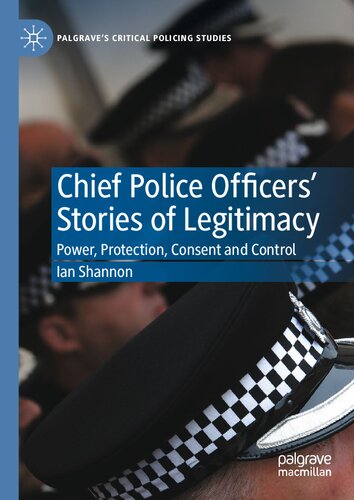

Most ebook files are in PDF format, so you can easily read them using various software such as Foxit Reader or directly on the Google Chrome browser.
Some ebook files are released by publishers in other formats such as .awz, .mobi, .epub, .fb2, etc. You may need to install specific software to read these formats on mobile/PC, such as Calibre.
Please read the tutorial at this link: https://ebookbell.com/faq
We offer FREE conversion to the popular formats you request; however, this may take some time. Therefore, right after payment, please email us, and we will try to provide the service as quickly as possible.
For some exceptional file formats or broken links (if any), please refrain from opening any disputes. Instead, email us first, and we will try to assist within a maximum of 6 hours.
EbookBell Team

5.0
108 reviewsThis book adds to knowledge about chief police officers in England and Wales by exploring their understandings of the right of police to exercise power. Their beliefs, motivations, backgrounds, and cultures are examined. Light is cast on how they perceive power, coercion, control, policing purpose, gendered understandings, protecting people, vulnerability, policing by consent, discretion, operational independence, law and the oversight and political direction (or governance), and accountability of police. Chief officers used three legitimating narratives based on: protecting people ― particularly the most vulnerable ― policing by consent, and law and the oversight and political direction of police. These accounts are assessed. Damaged processes of police governance that risk undermining police leadership and legitimacy are revealed. Critically, chief officers’ understandings of legitimacy are found to be confused, conflicted, and, above all, convenient in supporting them in asserting a privileged position from which they can pursue their preferences for the use of power.